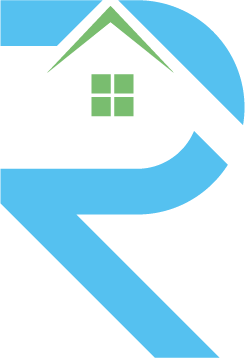Acquiring a mortgage, which is one of the most significant financial decisions you’ll make in your life, demands that you possess all the necessary information to make informed choices. Collaborating with an experienced and reliable mortgage broker can streamline this process and help you secure the most suitable mortgage for your specific needs.
1. What types of mortgage do you offer?
You must have all the information you need to make decisions before applying for a mortgage, one of the greatest financial decisions of your life. Working with a skilled and dependable mortgage broker may simplify the procedure and assist you in obtaining the finest mortgage for your requirements.
2. What is the current interest rate and APR?
Your mortgage must include both the interest rate and the annual percentage rate (APR). The APR gives a more complete picture by taking various fees and costs related to the loan into account in addition to the interest rate, which indicates the cost of borrowing the money. Due to market conditions and unique characteristics like your credit score, interest rates can change daily. Asking your broker for the most recent rates and APRs for the loan choices you’re thinking about is vital.
3. What are the down payment requirements?
The amount of the down payment required varies across different mortgage schemes. For instance, a down payment on a conventional loan could range from 3% to 20% or more, whereas the minimum required for an FHA loan is often 3.5%. For qualified veterans, VA loans might not demand any kind of down payment at all. Your broker can assist you in comprehending how these criteria apply to your circumstance and in making the necessary plans.
4. What are the closing costs?
Closing costs are fees related to the purchase of a home, including expenditures for insurance, title searches, and appraisals. It’s crucial to be aware of these charges because they can mount up quickly. You should receive a thorough summary of anticipated closing costs from your mortgage broker so you can plan your budget and, if necessary, bargain with the seller to have some of these expenses paid.
5. What is the loan origination fee?
A percentage of the loan amount is often levied by the lender or broker as compensation for completing your mortgage application as the loan origination fee. It’s crucial to comprehend this fee because it may have an impact on how much your loan will ultimately cost. Find out from your broker how their unique origination fee stacks up against that of other lenders and brokers.
6. Can you explain points and discount points?
Points are up-front costs used to lower your mortgage’s interest rate. 1% of the total amount of your debt is one point. By paying interest in advance, discount points are one way to reduce your interest rate. Although you may save money over the course of your loan with this, a greater down payment is necessary. Your mortgage broker can clarify the operation of points and discount points and assist you in determining whether they are appropriate for your financial circumstances.
7. What are the prepayment penalties?
Knowing whether your mortgage contains prepayment penalties is crucial. These fees are incurred if you pay off your loan early or significantly increase your payment amount. Prepayment penalties can affect your ability to reduce your interest rate or refinance your mortgage in the future, so you should be aware of them. If your loan involves prepayment penalties, your broker should be transparent about them and the conditions that apply.
8. Are there any special programs or grants I qualify for?
If you’re looking for unique programs or grants that might be accessible to you, your mortgage broker can be a useful resource. For instance, low-income people, veterans, and first-time homebuyers may be eligible for grants or special loan programs that provide financial assistance or have lower interest rates. These opportunities can be found and you can be guided through the application process by your broker.
9. What is the lock-in-period for the interest rate?
A specific interest rate lock-in period is frequently included in mortgage quotes. Your quoted interest rate is guaranteed to remain the same for the duration of this time frame. If you need extra time to finish the house buying process, lock-in periods might vary and you might be able to extend them for a cost. It’s crucial to be aware of the lock-in time and any related fees.
10. What documentation do I need to provide?
You must submit a number of documents as part of the mortgage application procedure so that your eligibility and financial information may be verified. These records could consist of W-2 forms, bank statements, tax returns, pay stubs, and more. Your broker should provide you a detailed list of the necessary paperwork and explain why each one is necessary for the application process.

11. How long does the mortgage approval process typically take?
Planning your home purchase requires that you have a clear understanding of the timeframe for the mortgage approval procedure. Your broker can give you an estimate based on their expertise, but the timetable can vary depending on factors including the intricacy of your application and the lender’s workload. You can use this information to plan ahead and establish reasonable expectations for the many steps involved in purchasing a home.
12.Can you offer testimonials from previous customers or references?
You can learn more about your mortgage broker’s track record and level of client satisfaction by asking for comments from previous customers or reading testimonials. Request references or testimonials from your broker, and make an effort to get in touch with former customers to ask them about their experiences. A trustworthy broker ought to be eager to offer this data.
13. What occurs if my credit score alters prior to closing?
Your ability to get a mortgage and the interest rate you pay depend heavily on your credit score. It’s crucial to go over any potential effects on your loan application with your broker before making any changes to your finances, job condition, or credit score. Throughout the mortgage application process, your broker can give you advice on steps to take to preserve or raise your credit score.
14. Do you offer rate locks?
By using a rate lock, you may guarantee a particular interest rate for a predetermined amount of time, shielding you from prospective rate rises while your loan application is being processed. Rate lock alternatives, including their duration and any associated costs, can be explained by your broker. Making educated decisions about when to lock in your rate can be made easier if you are aware of rate locks and their advantages.
15. What steps in the procedure are left?
There are various steps in the mortgage application and house buying process, from pre-approval to closing. The next stages should be explained by your broker so that you are aware of what to anticipate and can maintain your organization. This aids in maintaining a quick and easy transaction.
16. What is the best way to communicate with you?
For a smooth house purchase process, setting up open communication lines with your mortgage broker is crucial. Inquire with your broker about the best method of contact, such as phone, email, or in-person meetings. You may keep informed throughout the process if you are aware of how and when to get in touch with your broker for inquiries and updates.
Making informed decisions while purchasing a home requires that you ask your mortgage broker these questions. You can navigate the complexity of getting a mortgage, get the best terms, and assure a smoother path to homeownership with the help of an informed and open mortgage broker. To make the best decisions for your financial future, keep in mind that clear awareness of your mortgage alternatives and open communication are essential.



